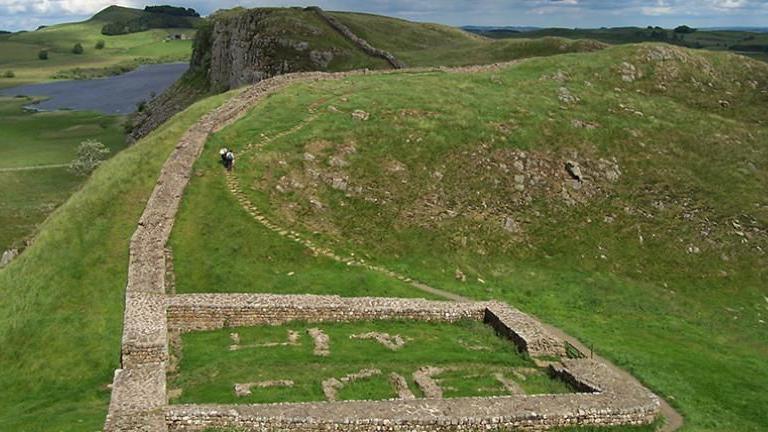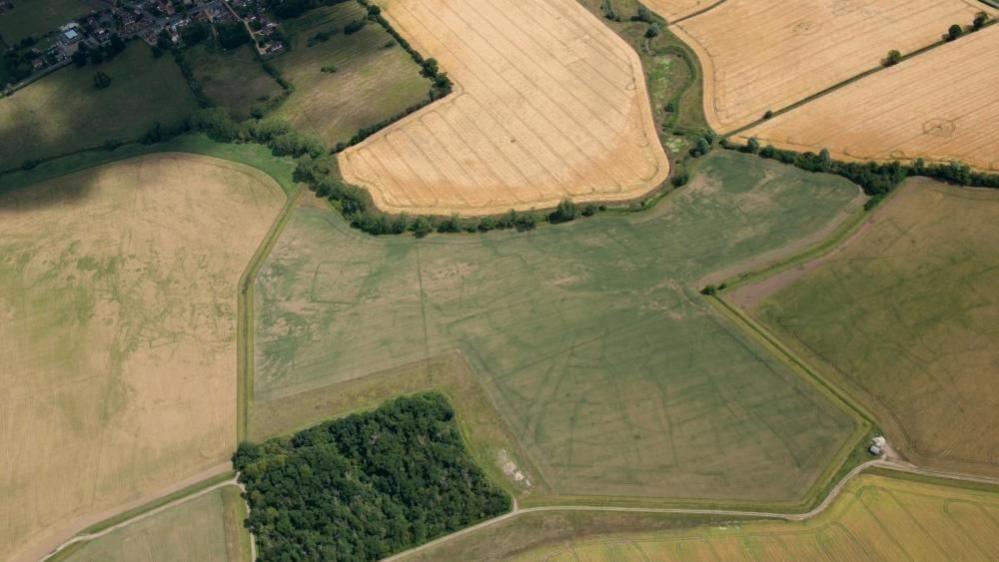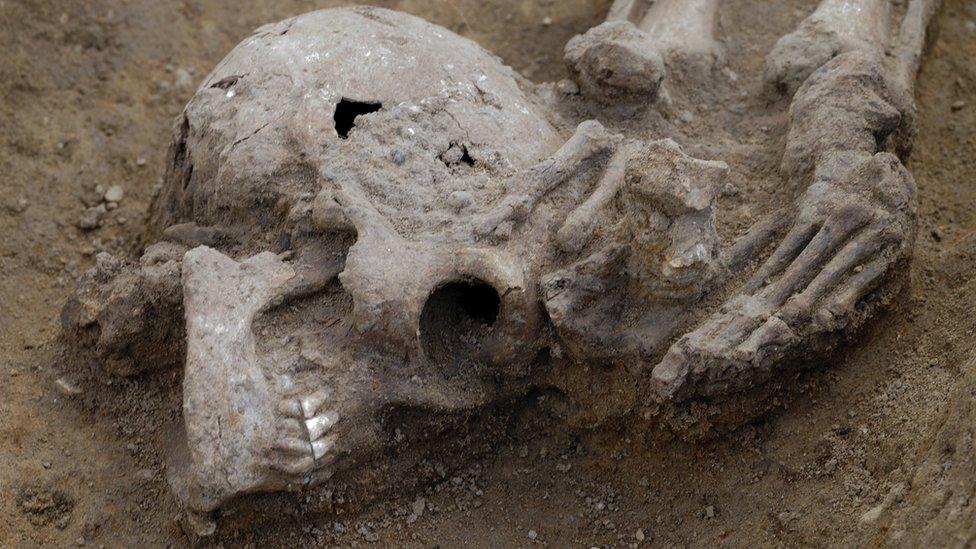Drought caused rebellion against Roman rule - study

A study by the University of Cambridge has led to an interesting revelation about the Roman Empire
- Published
Three summers of extreme drought might have contributed to British rebellion against Roman legions, according to academic research.
The drought took place between 364 and 366 AD and may have been a determining factor behind the rebellion, called the Barbarian Conspiracy, which was an attack on Roman rule in Britain.
Researchers from the University of Cambridge analysed oak tree-ring records and surviving Roman accounts to argue that the droughts were a driving force in the pivotal events.
The findings have been published in the journal Climatic Change.
Picts, Scotti and Saxons inflicted crushing blows on weakened Roman defences in the spring and summer of AD367.
Senior Roman commanders were captured or killed and it took two years for generals to restore order.
Picts, people who inhabited northern Scotland in Roman times, attacked the province by land and sea.
The Scotti from modern-day Ireland invaded broadly in the west, and Saxons from the continent landed in the south.
The final remnants of official Roman administration left Britain some 40 years later.
Prof Ulf Büntgen said: "Three consecutive droughts would have had a devastating impact on the productivity of Roman Britain's most important agricultural region.
"As Roman writers tell us, this resulted in food shortages with all of the destabilizing societal effects this brings."
The droughts led to crop failure as they no longer had the wet climate they were used to in order to thrive. They happened during a poor period for Roman Britain where food and military resources were being stripped and placed elsewhere.
The researchers expanded their climate-conflict analysis to the entire Roman Empire for the period 350–476 CE.
They reconstructed the climate conditions immediately before and after 106 battles and found that a statistically significant number of battles were fought following dry years.
Get in touch
Do you have a story suggestion for Cambridgeshire?
Follow Cambridgeshire news on BBC Sounds, Facebook, external, Instagram, external and X, external.
Related topics
- Published18 September 2024

- Published30 May 2021
